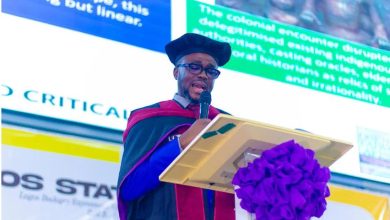Calls Grow for Tinubu to Approve Monthly Minimum Wage for TVET Students
Calls are mounting for President Tinubu to raise the proposed ₦45,000 stipend for technical students to ₦70,000, aligning it with Nigeria’s minimum wage.
At a high-level Abuja briefing, experts argued that prioritizing skills over megaprojects could transform youth employment and secure political wins by 2027.
A bold proposal to revolutionize Nigeria’s technical and vocational education and training (TVET) system has taken center stage as government stakeholders, educators, and policymakers gathered today in Abuja for a high-level ministerial briefing on the future of skills development in the country.
At the heart of the conversation is the push for the administration of President Bola Ahmed Tinubu to approve the payment of the national minimum wage of ₦70,000 monthly to students enrolled in public TVET institutions. This comes following a previous announcement that TVET students would receive ₦45,000 monthly stipends, a figure that has now been publicly challenged and described as inaccurate.
During the briefing, a former rector of Kaduna Polytechnic and TVET advocate made a passionate appeal to the Honorable Minister of Education to revise the stipend upward, arguing that the ₦70,000 proposal is “doable and sustainable.”
“If we give just 10,000 TVET students the minimum wage of ₦70,000 monthly, it will cost only ₦700 million a month ₦8.4 billion annually. That is achievable,” he declared.
The speaker emphasized that investing in skills should take precedence over infrastructural megaprojects.
“Even if Mr. President suspends the Lagos-Calabar Highway, the Lagos-Sokoto Highway, or even the 18 medical simulation labs, and channels that funding into TVET, it will guarantee not just economic transformation, but political victory in 2027.”
He cited Morocco as a success model, referencing a 2019 visit where he observed the country’s robust vocational training infrastructure.
“Morocco has over 325 specialized vocational institutes, state-of-the-art facilities, and stipends of 750 dirhams per month that’s over ₦120,000. Nigeria can replicate this success if we act decisively.”
The speaker also revealed that 30 Nigerian students have been sent to Morocco under an exchange program to learn from their technical training ecosystem.
The TVET briefing comes on the heels of President Tinubu’s recent education reform pledge, where he committed to paying ₦45,000 stipends to students enrolled in technical institutions as part of broader efforts to boost youth employability and drive industrial productivity.
However, with today’s remarks gaining traction across social media and in policy circles, the demand is growing for the stipend to match the national minimum wage a move many believe would incentivize enrollment, reduce youth unemployment, and position skills as a pillar of national development.
“With skills, Mr. President is sure of a second term. With skills, we will take over the Lagos Government House in 2027,” the speaker said in a politically charged yet visionary pitch.
The Honorable Minister of Education, who was present at the briefing, is expected to respond to the revised proposal in the coming hours.
Meanwhile, stakeholders agree that the transformation of the skills ecosystem could become one of the Tinubu administration’s most impactful legacies if adequately funded and urgently implemented.



